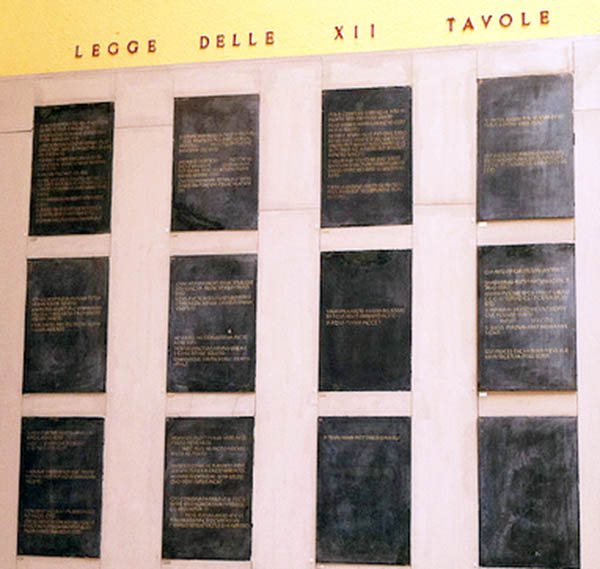The establishment of the Roman Republic according to tradition happened in 509 BC. On the head of the Republic were two electoral Consuls, which were changed each year and due to it was kept National Assembly (comitia), the Senate. Genus aristocracy strengthened and the following period was marked as a period of heavy fighting between the patricians and plebeians. The basis of fighting was around the land.
Under plebs pressure were adopted agrarian Laws. At the same time, it was led fight for expansion of the plebeians’ political rights. Plebeians had almost all the rights except to be elected as Consuls or Senators.
In 494 BC happened one of the first major dispute between patricians and plebeians.
According to Titus Livius, plebeians were dissatisfied with decisions about debts and due to that they refused to go on a campaign against the Eques (horseman), and they retreated to the Sacred Hill.
Because of this, Patricians were forced to compromise. After this, Plebeians decided to elect each year their representatives – Tribune, which were obliged to defend the interest of the plebs from the arbitrariness of Patrician magistrates.
During 50’s of V century BC, a Tribune Icilius passed a law about public land on the Aventine Hill, which was parceled out to provide dwellings for the poor citizens. In addition, he passed the law of Tarpeius and Aternius, which limit the right of the consul to impose fines.
Laws of Twelve Tables



In the first half of the V century BC, plebeians achieved certain successes. In 451 BC, a committee of 10 people was elected. Their task was to write laws – decemviri (the commission was composed of sophisticated patricians and they had huge power).
After conflicts between patricians and plebeians in 449 BC – a formal peace was signed. Earlier magistratures were restored and a law about provocation (ius provocationis) was established. According to this Law, every citizen could appeal on to Assembly about some unfair decision of the magistrate. After that, the Law of Twelve Tables was published, which was written as a customary Law. According to Titus Livius, these Tables represent the main source of Roman law, both public and private – establishing mandatory judicial proceedings. The prosecutor himself had to make sure to bring the defendant and not the authorities to the justices, which appeared during the proceedings in the role of judge-conciliator. The execution of the court decision was mandatory. These laws testify about the progress of sacred law, but at the same time, it testifies that the court proceedings were fulfilled with a number of formulas and rituals.
Mancipation, which was familiar to the Laws of Twelve Tables, was known for a special ritual of handing over things that were won on court, with the obligatory presence of the person who won things and the previous owner of the same thing.
According to the Law, there are two categories of things: those that are seized by mancipation (immovable property – land and buildings, and agricultural services) and those things that cannot be seized.
A concept about an unlimited property was born – which only the Romans can have and it was kept by the Roman laws. Violation of this concept was severely punished. For example, if a person attacked cattle on someone else’s land, that person was punished by sacrificing it to the underworld gods. Thefts at night were a bit milder than those convicted during the day.
The land could be inherited by the will or paternal line. Ager publicus or collective or state land, was not mentioned in the Laws of Twelve Tables. That is why they devoted considerable attention to the harsh law debt, whose oldest form was nexum (slavery for debt). Nexum or debtor would fell under the power of the creditor from the moment when he was not able to repay the debt. He would be free as soon as he paid the debt. The Laws also included family relationships where the pater familias enjoyed unlimited power, selling of children into slavery, etc. Systems of penalties for various injustices were antique talion (talio – retaliation) and fines (in aces).
Canuleius Laws
In 445 BC, Tribune Canuleius passed the Law according to which marriages between patricians and plebeians were recognized. With this Law ended the first period of social struggle in Rome. The success of the plebeians was explained: by their role in the military, by an increase of their economic power and by the fact that among the patrician there were no harmony.
